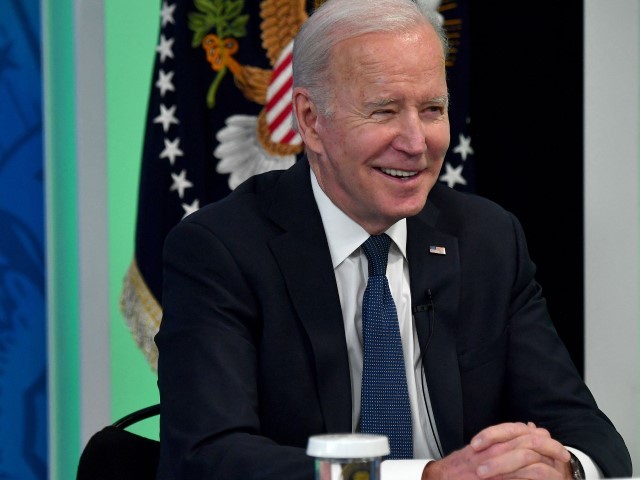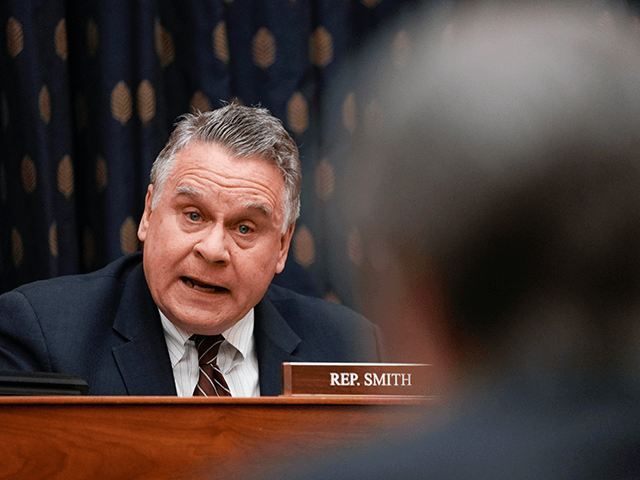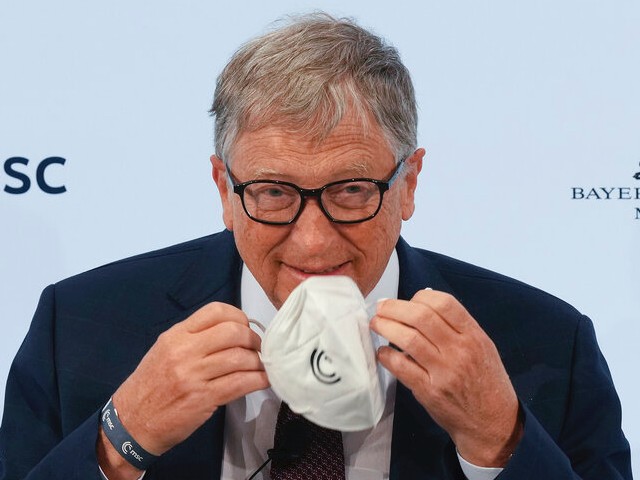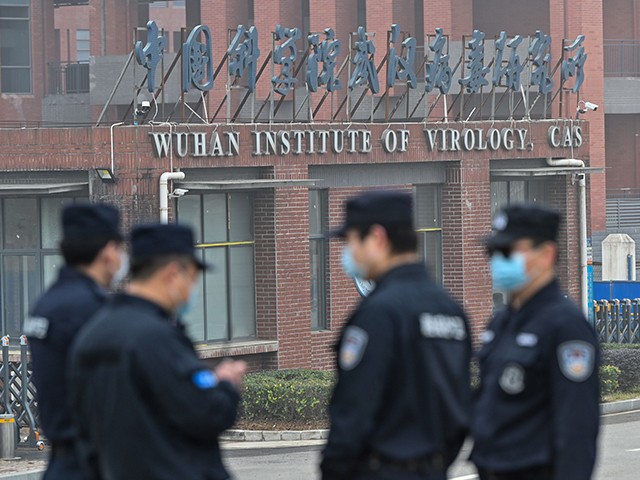Biden-Backed W.H.O. Treaty Amendment Would Yield United States Public Health Powers to U.N.
The World Health Organization (W.H.O.) is pushing for a “global pandemic treaty” to be ratified at its World Health Assembly, which begins on May 22.
The treaty would give the W.H.O. tremendous increases in power and funding, transferring much of the authority for pandemic control from member nations to the U.N. agency. The Biden administration in January proposed amendments to W.H.O.’s International Health Regulations (IHR) that would eliminate all requirements for W.H.O. to consult with member governments before declaring a disease outbreak.
Both the IHR amendments and the new “global pandemic treaty” are set to be topics of discussion at the upcoming World Health Assembly.
Supporters say this is necessary to improve worldwide pandemic response, while critics warn about the loss of national sovereignty to a globalist organization that did not distinguish itself during the Wuhan coronavirus pandemic.
Article 9 of the Biden administration’s proposed IHR amendments simply strikes out the existing requirement for W.H.O. to “consult with and attempt to obtain verification from the State Party in whose territory the event is allegedly occurring.” Every subsequent reference in the IHR to consulting with the relevant state party is likewise erased, effectively giving the W.H.O. director unilateral authority to declare outbreaks.

US President Joe Biden meets with business leaders to discuss the Bipartisan Innovation Act, in the South Court Auditorium of the Eisenhower Executive Office Building, near the White House, in Washington, DC, on March 9, 2022.
The World Council for Health (WCH), a non-profit organization opposed to the amended IHR that would increase W.H.O.’s power, summarized the amendments and the Biden administration’s support for them:
On January 18th 2022, the United States Department of Health and Human Services proposed amendments to the IHR. These amendments give control over the declaration of a public health emergency in any member state to the WHO Director-General – even over the objection of the member state. The Director-General communicated the text of the proposed amendments on 20 January 2022, via a circular letter to State Parties.
The proposed IHR amendments also cede control to WHO “regional directors,” who are given the authority to declare a Public Health Emergency of Regional Concern (PHERC). Moreover, the proposed amendments allow the Director-General to ring an international alarm bell, by unilaterally issuing an “Intermediate Public Health Alert (IPHA).”
Properly understood, the proposed IHR amendments are directed towards establishing a globalist architecture of worldwide health surveillance, reporting, and management. Consistent with a top-down view of governance, the public will not have opportunities to provide input or criticism concerning the amendments. This, of course, is a direct violation of the basic tenets of democracy and can be compared to the separate new pandemic treaty.

Rep. Chris Smith (R-NJ) speaks during the House Committee on Foreign Affairs hearing on the administration foreign policy priorities on Capitol Hill on Wednesday, March 10, 2021, in Washington. (Ken Cedeno/Pool via AP)
The WCH critique was cited by Rep. Chris Smith (R-NJ) in his denunciation of the Biden administration’s “absurd proposal to surrender U.S. sovereignty to the corrupt World Health Organization” on Wednesday:
At the onset of the COVID-19 pandemic, WHO caved to pressure from the Chinese Communist Party (CCP) and enabled China to hoodwink the world by providing tremendous cover to the CCP’s deadly lie that the coronavirus was not transmissible from person to person, even after being informed of the truth by Taiwan.
Instead of demanding accountability from the WHO and its Director-General Tedros Adhanom Ghebreyesus for their complicity in the spread of COVID, as I argued two years ago, the Biden Administration seeks to turn over American sovereignty and decision-making, potentially subjecting us to the CCP’s ongoing malign influence.
The alarming amendments offered by the Biden Administration to the WHO’s International Health Regulations would grant new unilateral authority to Director-General Tedros to declare a public health crisis in the United States or other sovereign nations, without any consultation with the U.S. or any other WHO member.
Smith was particularly opposed to the proposal that would eliminate the current requirement for W.H.O. to consult with the governments of member nations, including the United States, before declaring an infectious disease outbreak.
The WCH also criticized the amendments for giving W.H.O. increased surveillance powers and placing greater decision-making emphasis on its models and simulations.
W.H.O. would also be empowered to use “undisclosed sources” for its pandemic data, which could include all manner of self-interested or politicized sources, from pharmaceutical companies to organizations like the Bill and Melinda Gates Foundation. The director-general of the W.H.O. would gain unilateral authority to declare health emergencies and take punitive action against member nations.

American Businessman Bill Gates attends a discussion during the ‘Munich Security Conference’ in Munich, Germany, Friday, Feb. 18, 2022. (Michael Probst/AP)
The top spot in the agency is not currently an especially competitive one; Tedros Adhanom Ghebreyesus won re-election unopposed this year.
Supporters of the IHR amendments dismiss concerns about national sovereignty and insist W.H.O. would gain no decision-making or enforcement powers, instead merely assuming an enhanced advisory capacity with tougher requirements for member states to report pandemic data accurately.
“It is utterly untrue that the IHR would interfere with health care decisions or transfer such decisions to the WHO Director-General. The IHR amendments would ask countries to promptly and truthfully report infectious disease outbreaks, and WHO would offer assistance in managing the outbreak. But it could not force a country to allow WHO staff to interfere with its public health decision making,” Georgetown University law professor Lawrence Gostin told the Associated Press on Wednesday.
The AP’s correspondents also dismissed concerns that W.H.O.’s expanded authority could be diverted to politicized causes like climate change or gun control, where activists frequently describe the issues as public health crises, or explicitly want them to be addressed with government powers developed to combat the Chinese coronavirus pandemic.
“Unfortunately, there has been a small minority of groups making misleading statements and purposefully distorting facts. W.H.O. is an expression of Member States’ own sovereignty and W.H.O. is entirely what the sovereign 194 Member States want W.H.O. to be,” Tedros declared on Tuesday.
The Biden administration made its reform proposals in January after balking at some of W.H.O.’s more grandiose demands for more money and power. The administration was reportedly concerned that W.H.O.’s demands for increased mandatory fees were too high and quietly worried about W.H.O.’s ability to confront China.
As with Rep. Smith, critics of the IHR amendments point to China’s history of giving false information to W.H.O. and concealing vital pandemic data to question whether any of these enhanced W.H.O. powers would have any effect on the nation that unleashed the Chinese coronavirus pandemic, and is highly likely to be the source of future pandemics.

Security personnel stand guard outside the Wuhan Institute of Virology in Wuhan as members of the World Health Organization (WHO) team investigating the origins of the COVID-19 coronavirus make a visit to the institute in Wuhan in China’s central Hubei province on February 3, 2021. (HECTOR RETAMAL/AFP via Getty Images)
The Chinese apparently have little interest in waging a charm offensive to allay these concerns. On Thursday, Beijing angrily rejected calls for W.H.O. to restore Taiwan’s observer status – a purely political move by the malevolent regime in Beijing that has demonstrably injured the health of people in Taiwan and around the world.
U.S. Secretary of State Antony Blinken was among those who said W.H.O.’s blacklist of Taiwan was “unwarranted.”
“We firmly oppose the relevant statement issued by the U.S. There is only one China in the world, and Taiwan is an inalienable part,” the Chinese Foreign Ministry angrily responded.
The response was delivered by spokesman Zhao Lijian, who was instrumental in pushing China’s deranged allegations that Chinese coronavirus was created in a U.S. Army laboratory in Ft. Detrick, Maryland. China attempted to drag W.H.O. into peddling this conspiracy theory.
Chinese state media on Thursday accused the United States of “hijacking the global health body to create turmoil for China” by advocating observer status at the World Health Assembly (WHA) for Taiwan.
“The world’s superpower is obstinate in applying every possible tool – Taiwan’s WHA bid, Hong Kong national security bill, Xinjiang’s vocational education and training center, the COVID-19 pandemic, etc. – to create a nuisance for China, a rising socialist country that it deems as a geopolitical rival,” China’s state-run CGTN News shrieked.





Comments are closed.